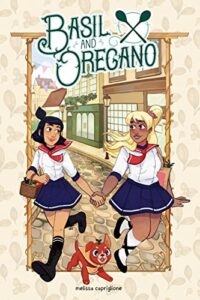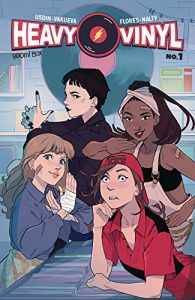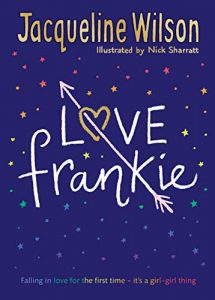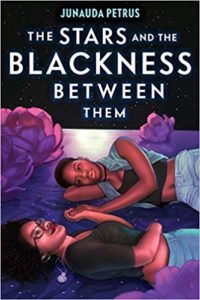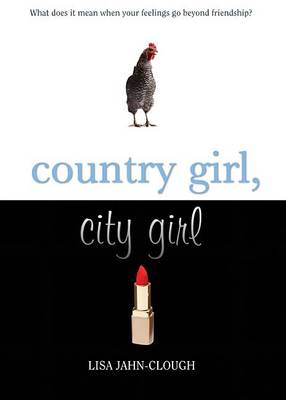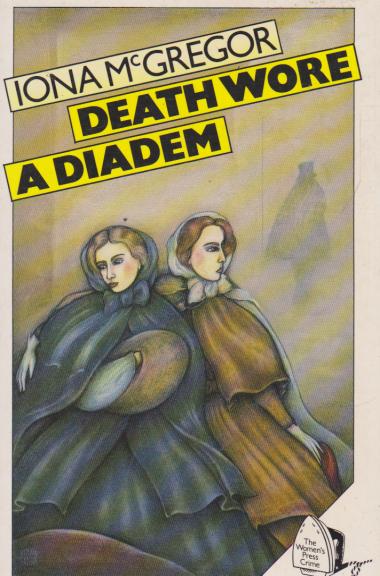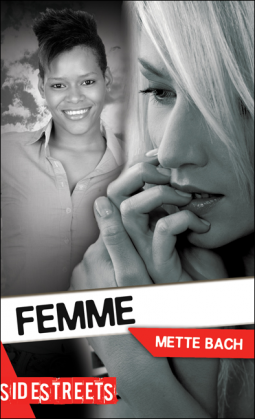Buy this through Bookshop.org to support local bookstores and the Lesbrary!
Since reviewing Grand Slam Romance, a heartwarming, sexy, and inspiring graphic novel set in the world of a magical queer softball league, I’ve been searching for another graphic novel to scratch that very specific itch. To my delight, Melissa Capriglione’s Basil and Oregano did just that. Though intended for a slightly younger audience, the book offers a similarly high-stakes competition setting, complete with tireless preparation, hostile rivalries, and underdog determination.
Porta Bella Magiculinary Academy is home to the world’s most gifted magical chefs-in-training, and Basil Eyres is among the school’s star students—because she has to be. If Basil doesn’t maintain the status of “top student” for at least two quarters of her senior year, her tuition reimbursement will be denied. Determined not to disappoint herself and her supportive dads, Basil toils away at her schoolwork, sometimes at the cost of hanging with her best friends, with whom she originally bonded because of their shared financial woes (those magic culinary schools aren’t cheap!). Basil is so laser-focused that nothing can distract her… until a cute transfer student, Arabella Oregano, walks into her life. Arabella seems to have it all—money, fame, looks—but it turns out Arabella is hiding some secrets of her own.
According to the author, Basil and Oregano is “a book about finding the true source of your passion and nurturing that which brings us joy.” This rings true, as Basil and her friends exude enthusiasm and curiosity about cooking, the passion that binds them. Instead of giggling about boys, they’re busy brainstorming recipes and raving about a delicious slice of cake. In fact, cishet boys are seemingly absent from this book. Something I love about both Grand Slam Romance and Basil and Oregano is that the authors have taken queer artistic license to fill their stories with queer, nonbinary, and trans characters, without those being controversial markers of their identities.
This book conjures a lot of the cozy feelings that we wish (ahem!) all magical boarding school novels could evoke. From the cathedral-like dining hall to the sun-drenched dorm rooms to the quirky professors, the pages just ooze magical charm. And don’t let the cover’s muted hues fool you—the book bursts with a huge range of colors, big poofs of magic, and delectable food illustrations. As fun and easy as it is to read, Basil and Oregano also explores themes of belonging, class, even mental health and burnout, concepts that I wish I had been introduced to as a teen.

